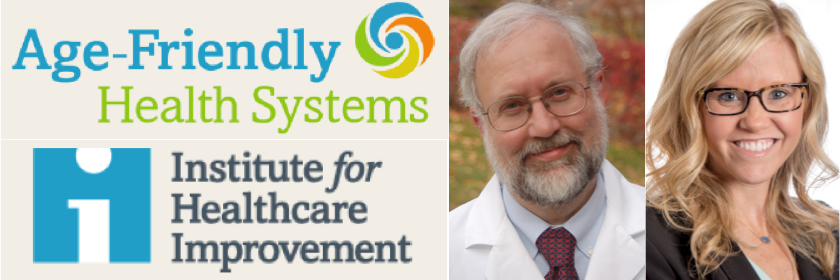
Don’t be surprised if at your next neurology clinic visit you receive a “Cognitive Vital Sign” in addition to the usual blood pressure, pulse, and temperature checks. This test is just one part of University of Utah Health’s initiative to join the Age-Friendly Health Systems (AFHS) movement. Spearheaded by the Institute for Healthcare Improvement and The John A. Hartford Foundation in partnership with the American Hospital Association and the Catholic Health Association of the United States, the AFHS movement focuses on improving care for every older adult through four essential elements known as the 4Ms: What Matters, Medication, Mentation, and Mobility.
“Doing a better job of caring for older patients will benefit all our patients”, says Norman L. Foster, MD, Chief of the Division of Cognitive Neurology. He and division neuropsychologist, Lindsay Embree, PhD, are leading a system-wide focus on one of the 4Ms, Mentation, making U of U Health the only health system in the Mountain West that has agreed to assess how well its patients are guided on the 4Ms.
Older patients and neurology patients of all ages are at high-risk for dementia and delirium. Routinely assessing cognitive health as a new vital sign with the 2-minute Mini-Cog test identifies memory problems so they can be addressed early and providers can take steps to prevent delirium during acute illnesses.
“Avoiding medications that make memory worse is an important goal and also falls under the second ‘M’ of the AFHS movement” notes Foster. “It isn’t sufficient to consider just one ‘M’, all work together. We talk about advance directives, assess mobility with fall risk assessment, and work hard to share what we know with patients, family members, and other health providers.”
Part of the initiative is to generate reports about how much we are improving. Currently, cognitive health status is assessed in about 20% of neurology patients, but Dr. Foster and Dr. Embree hope to double that percentage by March 2019 when the first phase of the AFHS initiative ends. Patients will notice changes in the emergency department and in hospital units too. For the first time, the whole health system will be working together to improve care specifically for older patients. It’s where you would expect U of U Health to lead the way.
The Cognitive Disorders Clinic is the only multidisciplinary cognitive specialty clinic in Utah, providing evaluation and management of memory disorders and dementia. The Clinic is testing promising new drugs that offer the potential of delaying the progression of Alzheimer’s disease. “As we learn more, we’re ready to bring this knowledge to patient care”, says Foster.